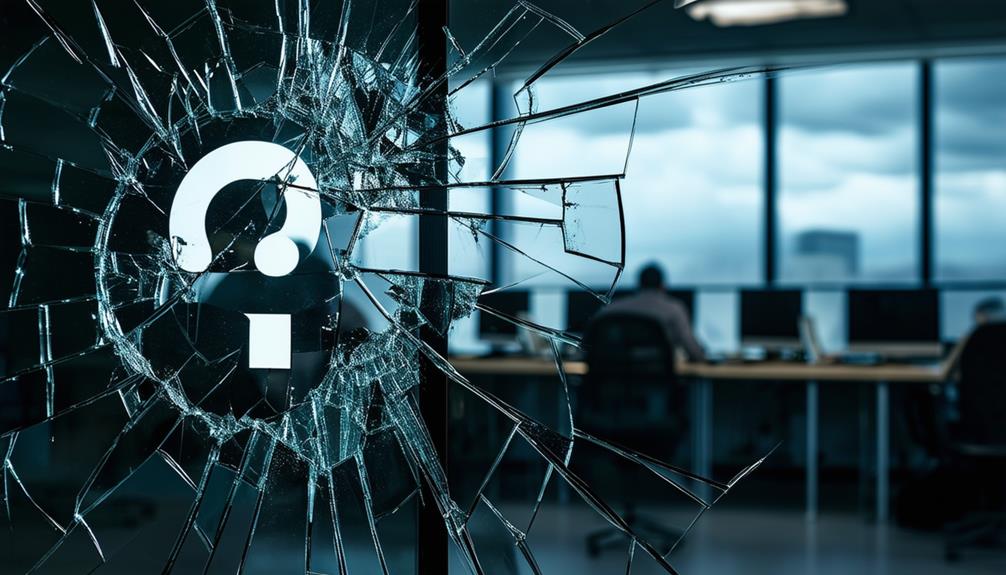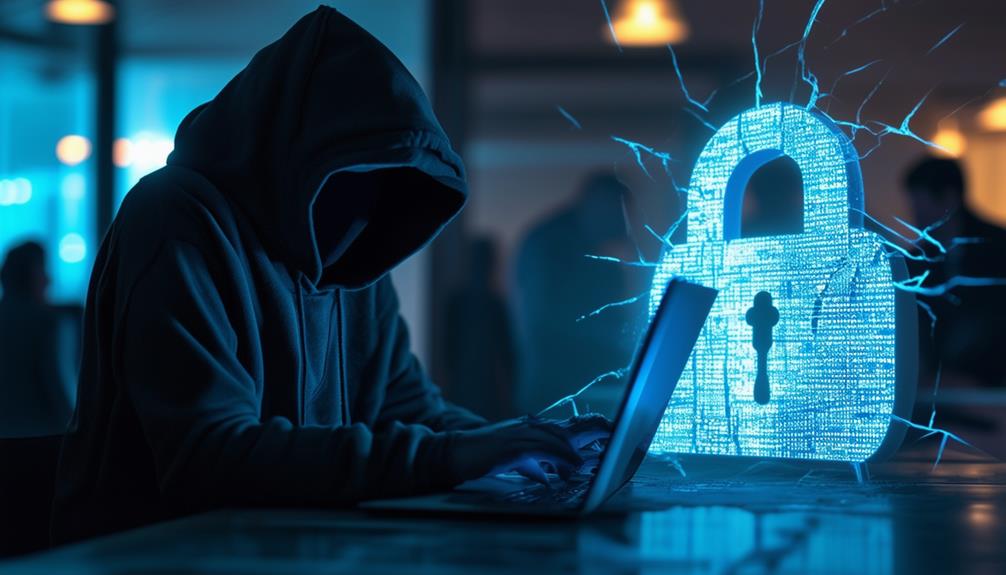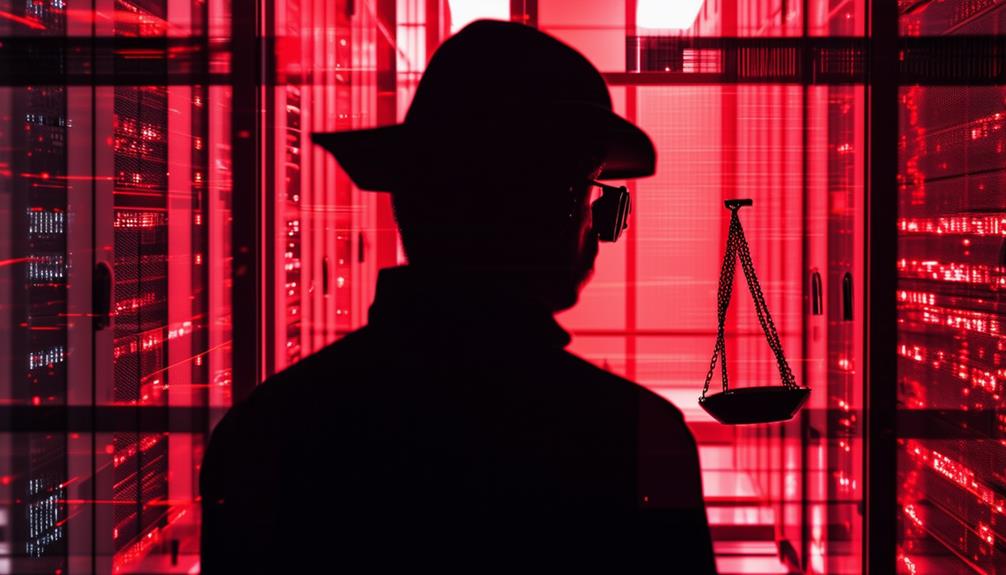Ransomware attacks can strike when you least expect them, leaving businesses in a state of chaos.
But following best practices can act as your shield against these threats. By putting solid security measures in place, you not only protect your data but also your entire operation.
The fallout from a successful attack can include financial losses and damage to your reputation. As cybercriminals evolve and refine their tactics, it's crucial to stay proactive.
So, what best practices can you implement to bolster your defenses against the changing landscape of ransomware threats?
From regular software updates to employee training, the right strategies can strengthen your organization's resilience.
Let's explore how to safeguard your business effectively.
Key Takeaways
- Best practices mitigate financial losses from ransom payments and recovery costs.
- Following guidelines reduces operational disruption and minimizes downtime during attacks.
- Adhering to best practices helps maintain organizational reputation and stakeholder trust.
- Proper security measures protect sensitive data and prevent privacy violations.
- Compliance with best practices reduces legal and regulatory risks associated with ransomware incidents.
Financial Losses and Recovery Costs

Ransomware attacks frequently lead to substantial financial losses and recovery costs for businesses of all sizes.
You'll face immediate expenses when your data is held hostage, including potential ransom payments, which can range from thousands to millions of dollars. Even if you don't pay, you'll incur costs for system downtime, lost productivity, and emergency IT services.
The recovery process is often lengthy and expensive. You'll need to invest in data restoration, system upgrades, and enhanced security measures. This might involve purchasing new hardware, software, and cybersecurity tools.
You may also need to hire external consultants or expand your IT team to prevent future attacks.
Long-term financial impacts can be severe. You might lose customers due to reputational damage, face legal consequences for data breaches, or see increased insurance premiums.
Small businesses are particularly vulnerable, with many unable to recover from the financial blow of a ransomware attack.
Operational Disruption and Downtime

Beyond the financial toll, one of the most immediate and disruptive consequences of a ransomware attack is the operational paralysis it can cause. When your systems are locked down, you'll face significant downtime that can bring your business to a standstill. Vital data becomes inaccessible, essential software unusable, and communication channels may be severed.
This disruption can last for days or even weeks, depending on the severity of the attack and your preparedness. You'll likely experience a sharp decline in productivity as employees struggle to perform their duties without access to necessary tools and information. Customer service may suffer, leading to dissatisfaction and potential loss of business. For time-sensitive operations, even a few hours of downtime can have far-reaching consequences.
Moreover, the ripple effects of operational disruption can extend to your supply chain and business partners. You might miss vital deadlines, fail to meet contractual obligations, or delay important projects.
The longer the downtime persists, the more challenging it becomes to recover lost ground and restore normal operations. By implementing best practices against ransomware, you're not just protecting your data; you're safeguarding your entire business continuity.
Reputational Damage and Trust Erosion

Suffering a ransomware attack can deal a severe blow to your organization's reputation and erode the trust of your stakeholders. Customers, partners, and investors may question your ability to protect sensitive data and maintain business continuity. This loss of confidence can lead to decreased sales, canceled contracts, and reduced market value.
Media coverage of your ransomware incident can amplify the reputational damage, potentially reaching a wider audience and tarnishing your brand image. Competitors may seize this opportunity to highlight their own security measures, further undermining your market position.
Regulatory bodies and industry watchdogs may scrutinize your cybersecurity practices, potentially leading to fines, sanctions, or increased oversight. This can create additional costs and operational burdens for your organization.
Rebuilding trust after a ransomware attack is a challenging and time-consuming process. You'll need to invest in transparent communication, improved security measures, and possibly third-party audits to demonstrate your commitment to data protection.
These efforts can strain your resources and divert attention from core business activities.
Data Breach and Privacy Concerns

A major consequence of ransomware attacks is the potential for widespread data breaches and severe privacy violations. When cybercriminals gain access to your systems, they can exfiltrate sensitive information before encrypting it. This means your customers' personal data, financial records, and confidential business information are at risk of being exposed or sold on the dark web.
You're not just facing the immediate threat of data loss; you're also grappling with long-term privacy concerns. Once your data is compromised, it's difficult to contain the spread of information. Your customers may become victims of identity theft, fraud, or targeted phishing attacks. You'll need to inform affected individuals, comply with data protection regulations, and potentially face legal consequences.
Moreover, the breach can extend beyond your organization. If you store data from partners or suppliers, their information is also at risk. This can lead to a domino effect of privacy violations across your entire business network.
Legal and Regulatory Consequences

Ransomware attacks' legal fallout can be devastating for organizations. You'll face potential lawsuits from affected customers, partners, or employees if their data is compromised. These legal actions can result in significant financial penalties and damage to your reputation.
Moreover, you may be held liable for failing to implement adequate security measures or for not disclosing the breach promptly.
Regulatory consequences can be equally severe. Depending on your industry and location, you might be subject to strict data protection laws like GDPR, HIPAA, or CCPA. Non-compliance with these regulations can lead to hefty fines, sometimes reaching millions of dollars.
Regulatory bodies may also impose sanctions, such as temporary business suspensions or mandatory third-party audits.
You'll need to allocate resources for legal defense, regulatory investigations, and potential settlements. This can strain your finances and divert attention from core business operations.
Additionally, you may be required to implement costly remediation measures to prevent future attacks. In some cases, executives and board members could face personal liability for cybersecurity failures.
To mitigate these risks, it's essential to invest in robust cybersecurity measures and stay informed about evolving legal and regulatory requirements.
Conclusion
You can't afford to ignore best practices against ransomware attacks. By implementing them, you'll protect your finances, maintain operations, and preserve your reputation. You'll also safeguard sensitive data and avoid legal troubles. Don't wait for an attack to happen; act now. Invest in robust cybersecurity measures, train your employees, and regularly back up your data. Remember, prevention is always cheaper and less stressful than recovery. Stay vigilant and stay safe.

